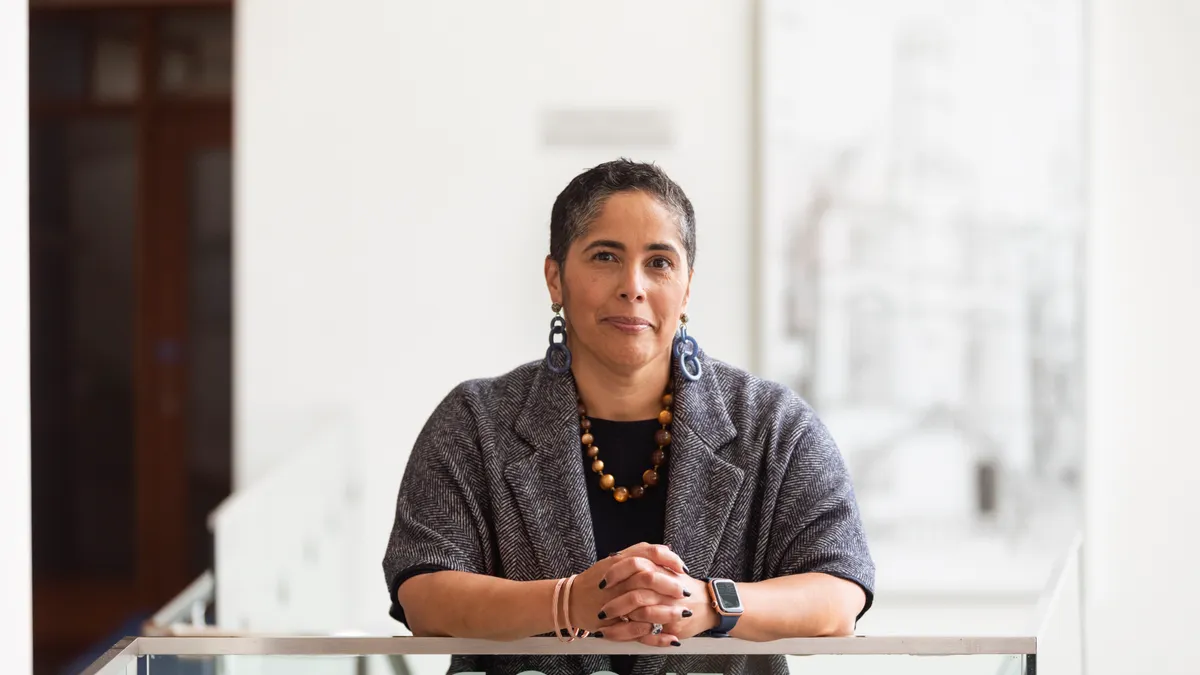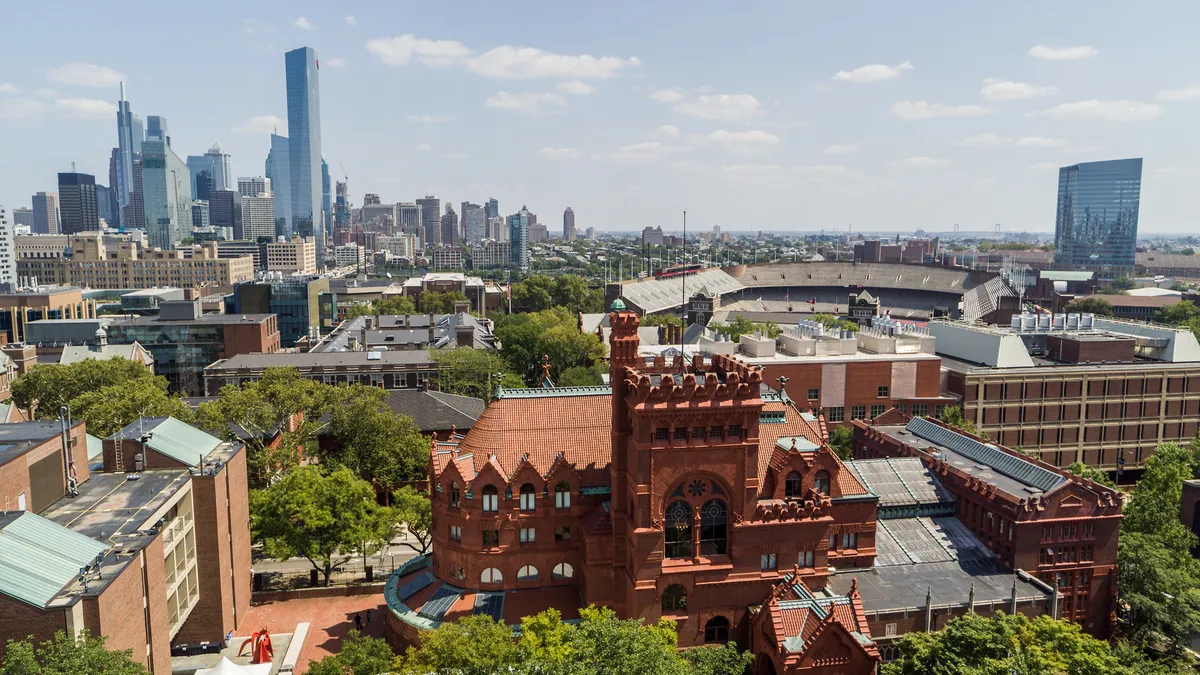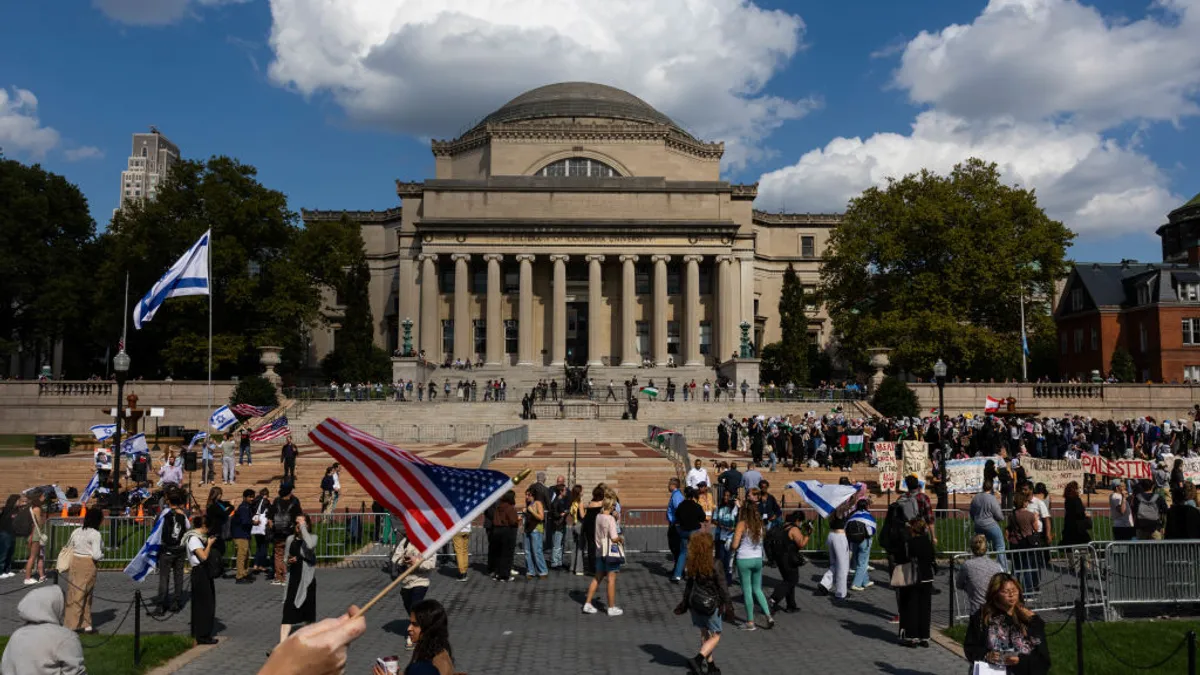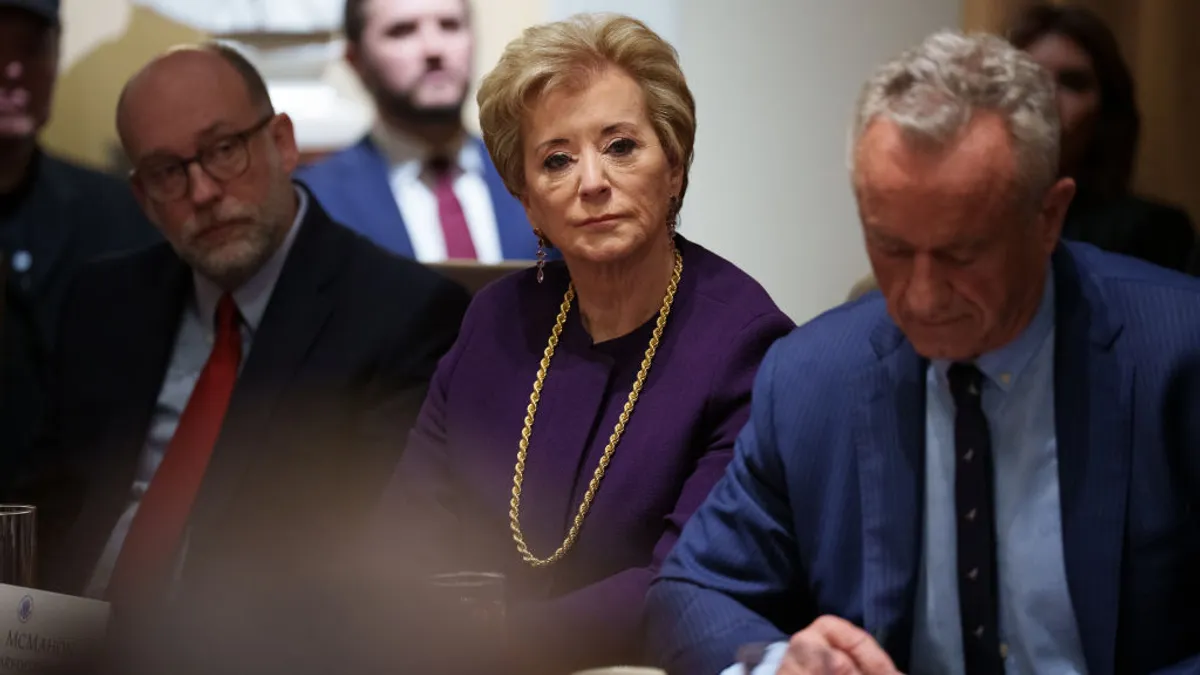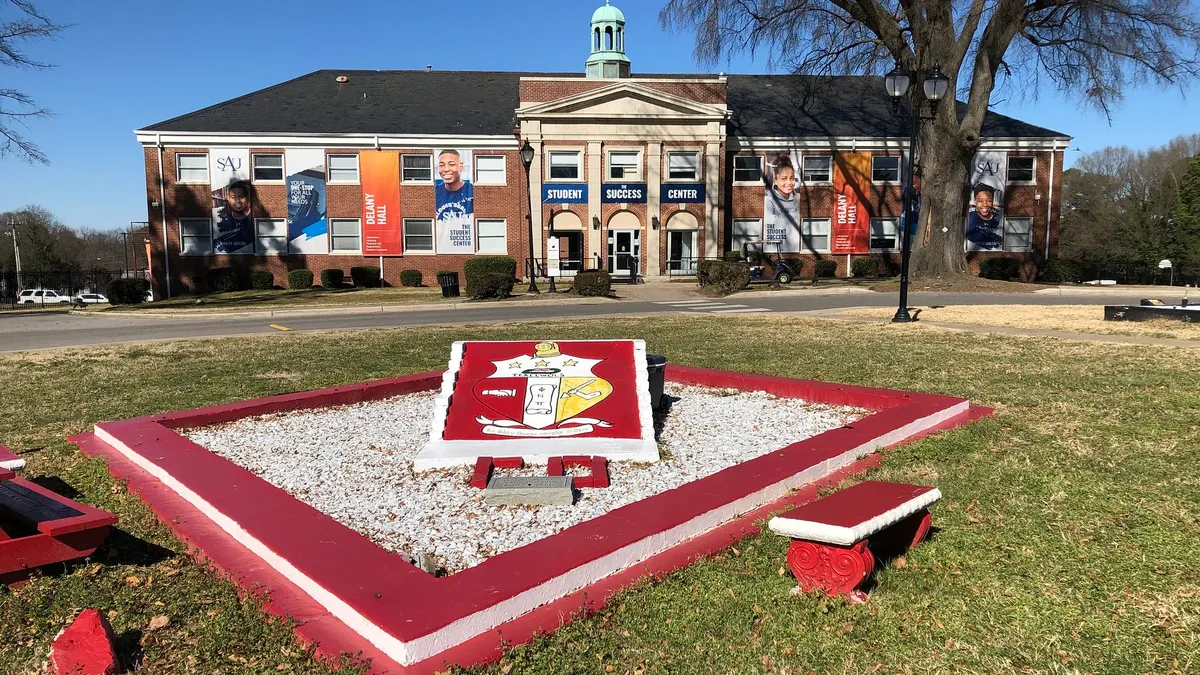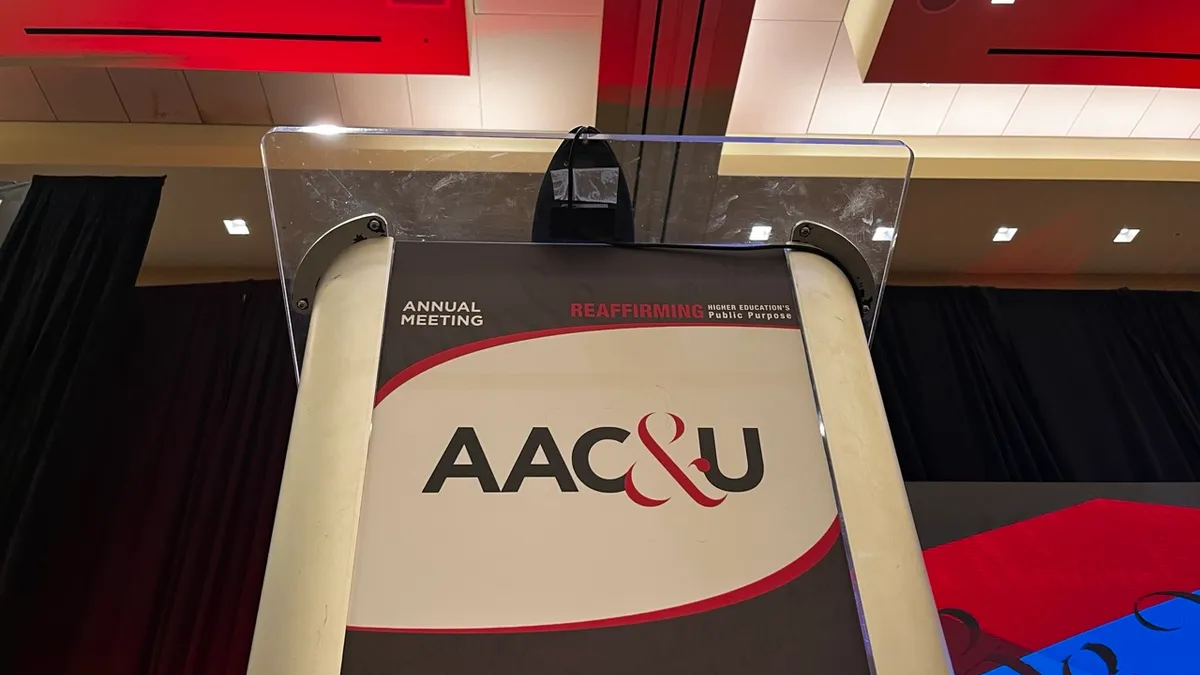Ithaca College President Shirley Collado announced last week that she's leaving to become the president and CEO at College Track, an organization seeking to support low-income and first-generation students from ninth grade through college graduation. The move aligns with her resume but is unorthodox for a college leader.
Collado became the first college president who is a veteran of the Posse Foundation's programming, which recruits, trains and funds diverse groups of talented high school students from urban schools, sending them in small teams to study at high-ranking colleges and universities. The daughter of immigrants from the Dominican Republic, she was in the inaugural Posse cohort.
She was later executive vice president at the foundation. Before Ithaca hired her in 2017, she held a top administrative role at Rutgers University-Newark.
Collado's time at Ithaca hasn't always been easy.
In her first year, anonymous packages arrived at two student newspapers. They contained court documents detailing a no-contest plea she entered to a misdemeanor sexual abuse charge in 2001. She's denied wrongdoing, saying she did not have the resources to fight the case at the time, when she was a psychologist early in her career attempting to help a patient.
More recently, she led efforts to confront financial pressures at Ithaca, focusing on plans to "determine and maintain an appropriate, sustainable size." In February, Ithaca approved plans that would eliminate 116 of nearly 550 full-time equivalent faculty positions despite faculty resistance.
Ithaca's provost will take over for her as interim president in a few weeks, and Collado will become senior adviser to the interim and the college's board through the end of this year. She starts at College Track in January.
Higher Ed Dive talked with Collado about her decision to move to College Track, what she learned while at Ithaca and what advice she has for other college presidents.
Editor's note: This interview has been edited for brevity and clarity.
HIGHER ED DIVE: What was your thought process in making this move?
COLLADO: My presidency and time at Ithaca has been extraordinary and really aligns with my values as a first-generation college student. My life's work has been completely focused on issues of access, affordability, really enhancing the student experience so that all students can flourish, and trying to create and mobilize equitable environments that allow for all members of an academic community to flourish.
We find ourselves right now in one of the most urgent times in America around issues of social justice, racial injustice and this huge divide as we look at what students can actually do on the pathway that is college.
This was an opportunity that really resonated with me on a deep, personal level and also around my core values as a leader. I feel an urgency to address the issues that I just outlined, and what College Track does nationally is extraordinary: investing in students across the country over a period of a decade, really identifying that the pathway can't just be a scholarship or a one-time solution. It takes an entire ecosystem to support a student, especially first-generation and low-income students.
Do you think the higher ed sector needs to change?
I find that historically, when we're talking about issues of racial injustice, economic mobility and access to education, the ultimate shortcoming of our sector is that we have expected students from all walks of life over time to start to join our communities. We have a harder time understanding that when that happens — when you're really inviting students to be themselves and flourish in an academic community — it forces the question: How is this institution going to fundamentally change?
At Ithaca, I think we have bravely and courageously named those things in the strategic plan, Ithaca Forever. When I began my presidency we put at the core those hard questions that we needed to address in order to truly be a student-centered campus.
To be student-centered often means we have to make decisions that aren't always comfortable: if you want to be affordable, if you want to align your values with your resources, if you want all students to come in and feel like full-fledged members of your community and not just visitors. Be concrete: policies, spaces, the curriculum, what students experience in the classroom. Do they see themselves in the leadership of the institution?
I tell people all the time: "Yes, first-generation students and students of color, low-income students, see themselves in me. Women of color see themselves in me." But so do many of my other students — White students, students who come from different backgrounds than me. And I'm really intentional about that.
How do you lead change at colleges, which are decentralized organizations with many interconnections?
In order for us to really deal with issues of equity, diversity and inclusion, and justice in the academy, you've got to hit it from the core. You have to do the hard work of going to the mainline central DNA and hardwiring of the place.
Our plan requires our institution from the board to the faculty to the students to home in on what we need to be responsive and nimble to the lived experiences of our students today and think eons ahead of what our students will be like tomorrow.
That systemic approach from the power source into the main veins of the place, I think about as healthy disruption. It's necessary. That's what our students have been showing us with all the activism across the country.
This year our country faced major turmoil. Academic communities are not insulated from that. In running College Track I will be at the helm of an organization that is completely about these issues, and they are working with students across the country from an early age, well before they get to college. And then these colleges have to actually invite them in and completely affirm authentically the promise of who they are and what they bring, not just ask them to adapt.
How do you approach making your case to different constituencies?
It's multifaceted, and your audience matters. But you've got to be consistent across your constituencies.
I came to Ithaca because I was drawn to the vision and the need that the board was identifying, that the community knew it needed to completely embrace. And so I entered an institution at a time when it was ripe and ready and people wanted to have agency, and they wanted to be honest and name the hard stuff.
What are your hopes for your time at College Track?
It is my hope that in leading College Track nationally I'll be able to do the work throughout the entire higher education ecosystem. We need good leaders within institutions, and we need good leaders across the entire system.
I'm not someone who has grown up in a single model of higher ed. I was willing to make moves across sectors because I was called to a mission. The future of colleges and the work that we do will require leaders who have operated in different sectors and not grown up in one model.
Do you want to share any other advice or lessons you learned for college leaders?
We need to stop talking to just ourselves and what we consider our peer groups. There is so much to learn across our different sectors.
It doesn't matter what sector you're in. R1s and regional universities and elite liberal arts colleges are learning the power of community colleges. Liberal arts colleges can teach a whole lot to major research universities and vice versa. During the pandemic our local government in Ithaca, small businesses, our health systems — completely different sectors outside of what we do — are major partners.
It does mean reaching across the aisle and doing something completely different, reinventing ourselves in a completely different way. Whether it's a nonprofit like College Track or a major university like Vanderbilt or Ithaca, none of us is going to be able to do it alone.



